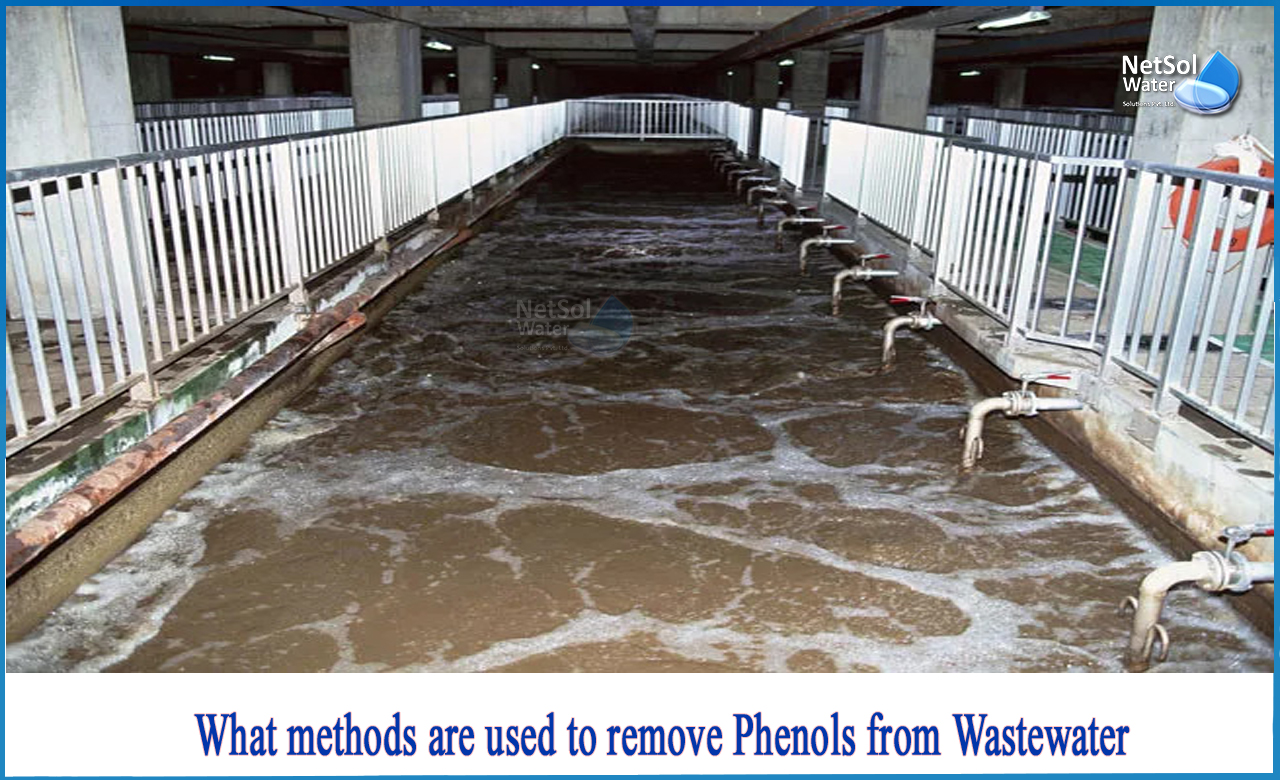What are Phenols?
Phenols are the compounds or chemicals made by substituting hydrogen atoms with hydroxyls in aromatic hydrocarbons. These chemicals are solids that are produced by distilling coal tar and heating chloro-benzene with water.The molecular formula of phenol is C6H5OH. It is a flammable white crystalline substance. It's mildly acidic and should be handled with caution because it can cause chemical burns.
Effects of phenol on humans
Human health is harmed by phenolic chemicals, which cause necrosis, digestive difficulties, and liver and kidney damage. Even at concentrations as low as 1 mg/l, the presence of phenols in drinking water can cause major public health problems and the mortality of fish. They are harmful to other biological species and degrade the aquatic environment at concentrations of less than 1 mg/l(ppm).
Sources of phenol in wastewater
Phenolic compounds are relatively water-soluble pollutants widely used as industrial chemicals for wood preservation, in petroleum refineries and petrochemical plants, in coke gasifiers, in the pulp and paper industry, in pharmaceutical plants, in the food industry, in minerals, plastics, metals, and organic chemical plants, and in agricultural pesticides. Disinfectants contain phenolic compounds in low concentrations, and they're also found in alcoholic beverages, medications, and cosmetics.
What methods are used to remove phenols from wastewater?
Extractive membrane bioreactors and hollow fibre membranes photocatalytic membrane reactors, high-pressure membrane processes such as nanofiltration and reverse osmosis, and membrane distillation are the most common technologies used to remove phenols from wastewater. Biodegradation, adsorption and extraction, membrane separation, and chemical oxidation are some of the existing treatment techniques.
A treatment system must be carefully selected and engineered, taking into account unique wastewater chemistry, operational circumstances, and costs.
Let us discuss in detail the following treatment techniques with advantages and disadvantages;
1: Biodegradation
Advantages of Biodegradation
• In this process, phenols are degraded by microorganisms.
• It is a cost-effective and safe and simple.
Disadvantages of Biodegradation
•High phenol concentrations, TDS, acidity, and other factors make this process unsuitable.
•Other chemicals or aeration treatments may be required.
• It requires large spaces.
2: Membrane Separation
Advantages of Membrane Separation
•To reject phenols, other chemicals, and ions, it employs a high pressure and fine membranes.
• It is effortless and dependable technique.
• It is scalable with a small footprint.
• It produces only a small amount of concentrated brine.
Disadvantages of Membrane Separation
•Fouling and scaling are two risks that must be addressed.
•It can't fulfil low discharge criteriahowever it can be used in conjunction with other stages.
3: Adsorption
Advantages of Adsorption
• In this process, phenols bind to activated carbon and other substances.
•To separate liquids, solvent extraction uses relative solubilities.
•For low concentrations, activated carbon solvents are cost-effective.
•Solvent recovery is a possibility in adsorption.
Disadvantages of Adsorption
•Due to high consumable costs, it is not cost effective at high concentrations.
• It requires the disposal/recycling of used air conditioners and solvents.
4: Chemical Oxidation
Advantages of Chemical Oxidation
•It employs one of several oxidation techniques, such as the Fenton reaction.
• It is highly scalable.
Disadvantages of Chemical Oxidation
•Costs of consumables and energy are high.
•Additional treatment, precipitation, or solids management may be required.
How can we help?
For the removal of phenols and phenolic compounds from Industrial Wastewaters, contact Netsol Water. Our process experts at Netsol assist our clients by giving various options for analysis. We help you choose the best treatment for your phenol-laden wastewater. Because providing you with the best solution is our top priority.
We can add our testing, automation, and piloting skills to the project once a treatment technology has been selected. Please contact us on+919650608473 or contact via email at enquiry@netsolwater.com for further consultation or product purchase related query and to learn more about how we can assist you in overcoming your phenol difficulties.



